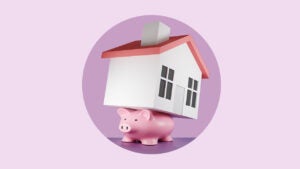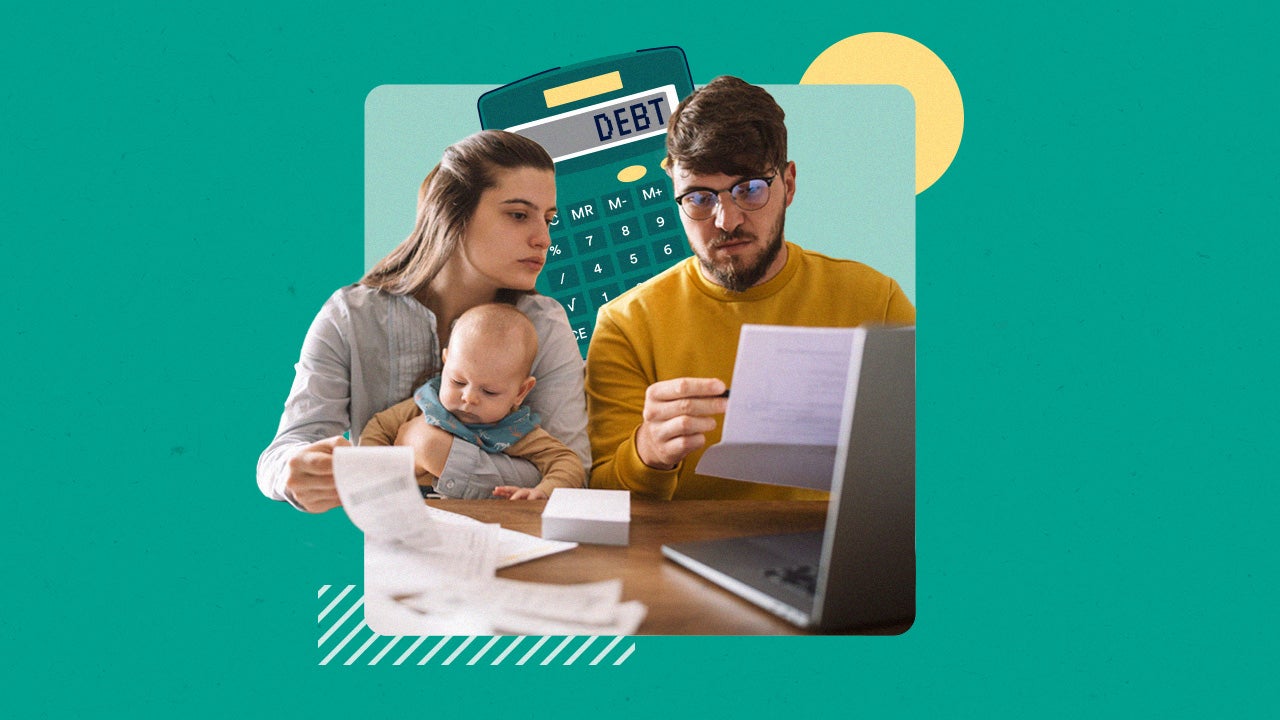Ask Bankrate: When will the recession end? Should I save or pay down debt?

Ask Bankrate is a recurring feature where Bankrate’s experts answer your financial questions. Visit this page for more information on how to submit your question. Click on a question here to jump straight to it.
Questions:
- When will this recession end?
- Should I save or pay down debt?
- Will relief programs trigger inflation?
- Why are banks swimming in deposits?
- How should I withdraw money in retirement?
- Will mortgage rates fall even more this year?
- Wait for rates to go lower before getting a mortgage?
- Will it become harder to do a cash-out refi?
- When will foreclosures start?
- What should I know about refinancing?
Q1: When will this recession end?
Do you have any sense of when we may be out of this recession?
— Anis R.
Answered by James Royal, senior investing and wealth management reporter: “It can always be tough to judge when a recession may end. The last few recessions (early ‘90s, 2001-2003 and 2008) were all “jobless recessions,” meaning that the economy began growing again but people were unemployed much longer than these figures might indicate.
The Fed has already stated that it doesn’t expect to raise interest rates until past 2022, so that gives you some idea how long recessionary forces will be in play, and that’s probably a minimum.”
Q2: Should I save or pay down debt?
Is it best to save or pay down credit card and home equity debt?
— Vearllean S.
Answered by James Royal, senior investing and wealth management reporter: “The easiest way to compare your options is to look at the interest rates. If the rate on your credit cards or home equity is higher than what you can make in savings, then that’s your best option. With credit cards charging 15 percent interest or more, it’s hard to beat paying down this debt. Even the stock market doesn’t deliver that kind of return, returning about 10 percent annually over long periods, but with major dips along the way.
When you have your credit card debt under control, then build an emergency fund so that you won’t need to resort to credit cards when times get tough. Then you can begin thinking about investing for the longer term.”
Q3: Will relief programs trigger inflation?
Will the relief programs and money printing program cause inflation, and what would that do to the stock market?
— Jennifer
Answered by James Royal, senior investing and wealth management reporter: “Even with all the stimulus in 2020, we’re not likely to see substantial inflation, and that’s what the bond market is telling us, too. The rate on 30-year Treasuries is a modest 1.4 percent or so. In some ways the money injection is a repeat of 2008-2009, when the Fed began a huge range of programs to get money into the market and the government engaged in deficit spending. Yet despite the money being injected into the markets over the past decade, inflation has remained low. It should be the same situation this time around, too.
As for how stocks would perform with inflation, that could vary. Companies with good economics may be able to continue passing on the increased costs to their customers, though many companies won’t be able to do that. The people who really get hit in such situations are those who hold bonds or who are on a fixed income. In contrast, many companies can pass on price increases over time, meaning their stocks will be more resilient, but that doesn’t mean they won’t dip in the short term.”
Q4: Why are banks swimming in deposits?
Why are bank deposits going up so much?
— Blaine P.
Answered by Greg McBride, CFA, Bankrate chief financial analyst: “Part of this is what is called ‘a flight to quality.’ In other words, when markets are turbulent, the economy is uncertain, or investors are nervous for any reason, money tends to flow out of riskier investments and into safe, secure investments — like Treasuries issued by the U.S. government or into federally insured bank accounts.
The other contributor to this recent flood of deposits has been companies drawing down lines of credit and issuing bonds or stock to raise capital just in case they need it. That money gets parked in safe, secure investments — or at the bank — until it’s needed.”
Q5: How should I withdraw money in retirement?
Any advice on how to withdraw your money in retirement? Most of my money is in a rollover IRA, with minimal funds in a Roth IRA.
— CR
Answered by Stephen Kates, CFP: “The minimum age for penalty-free withdrawals from retirement accounts is 59 1/2, and if you are below this age you should speak to the custodian of your IRA about options available to you. If you are over 59 1/2, then planning out an automatic withdrawal schedule will simplify your life. Most banks and brokerage firms allow you to schedule monthly, quarterly or yearly withdrawals and set a specific amount or percentage to distribute. Additionally, you can also schedule how much to withhold for taxes with each payment.
Common wisdom dictates that a withdrawal of 4 percent of your accounts will be a sustainable distribution over a 30-year retirement. However, this adage depends on both your investment growth and your expected length of retirement. If you expect your investments to grow less than the amount you are withdrawing or if you expect to have a longer retirement than approximately 30 years, you should adjust these expectations. A financial adviser could assist you with planning for your lifetime needs in both circumstances.
Lastly, you are only required to withdraw from your rollover IRA at age 72 and will never be required to withdraw from your Roth IRA. If you are balancing your income needs with tax implications, you can try to use the Roth strategically to meet your needs and keep your taxes lower.”
Q6: Will mortgage rates fall even more this year?
Do you anticipate mortgage rates to fall more this year or in 2021? How long will mortgage rates stay this low?
— Robert G., Anis R.
Answered by Greg McBride, CFA, Bankrate chief financial analyst: “It’s certainly possible for mortgage rates to fall even more given the weak economic backdrop and as lenders free up capacity to take on more loans.
The weak economy, stimulus efforts from the Federal Reserve, and prospects that inflation stays low all keep a lid on mortgage rates. It’s a low probability event, but if inflation started moving up consistently, then we’d likely see a very quick reversal in mortgage rates. But again, that’s not particularly likely at this point.”
See expert predictions on mortgage rates for the coming year here.
Q7: Wait for rates to go lower before getting a mortgage?
Should I wait for rates to decline before I get a mortgage?
— Dave
Answered by Jeff Ostrowski, senior mortgage reporter: “In the past, as mortgage rates fell, the answer was always clear: If you can save a chunk of change on monthly payments, refinance now. Don’t roll the dice on the direction of interest rates. But the combination of the coronavirus and a flood of refinance applications has changed the rules.
With U.S. unemployment in double digits and the country still partly shut down, these are anything but normal times. The economic recovery could drag on, and almost no one predicts a spike in mortgage rates in the near future. There’s also this wild card: Lenders have been so inundated with refinance applications that they’ve kept rates higher than would be the case in normal times to quell demand. So waiting might play into your favor.”
Q8: Will it become harder to do a cash-out refi?
Do you think it will become more difficult to do a cash-out refinance?
— Melinda R.
Answered by Greg McBride, CFA, Bankrate chief financial analyst: “It is more difficult to do a cash-out refinance now. Not impossible, just more difficult as some lenders have stopped doing them altogether while most others are charging a higher interest rate to do a cash-out refinance than a straight rate-and-term refinance.”
Q9: When will foreclosures start?
When do you expect foreclosures to begin?
— John and Max
Answered by Greg McBride, CFA, Bankrate chief financial analyst: “In another year or so. As payment relief and forbearance options begin to expire, this will trigger delinquencies, then defaults and then foreclosures. But that process will take months to unfold and not resemble anything like what we saw during the housing bust.”
Q10: What should I know about refinancing?
What are best practices of refinancing? Is there anything to be careful of when choosing lenders?
— Carina L.
Answered by Jeff Ostrowski, senior mortgage reporter: “Closing costs are the biggest wild card when refinancing. They can range from 2 to 5 percent of the amount of the loan — so refinancing a $300,000 mortgage can cost you $6,000 to $15,000 upfront. Make sure your savings from a lower rate will be enough to offset those costs within a few years. Because closing costs can vary widely from lender to lender, be sure to shop around.”
Why we ask for feedback Your feedback helps us improve our content and services. It takes less than a minute to complete.
Your responses are anonymous and will only be used for improving our website.



